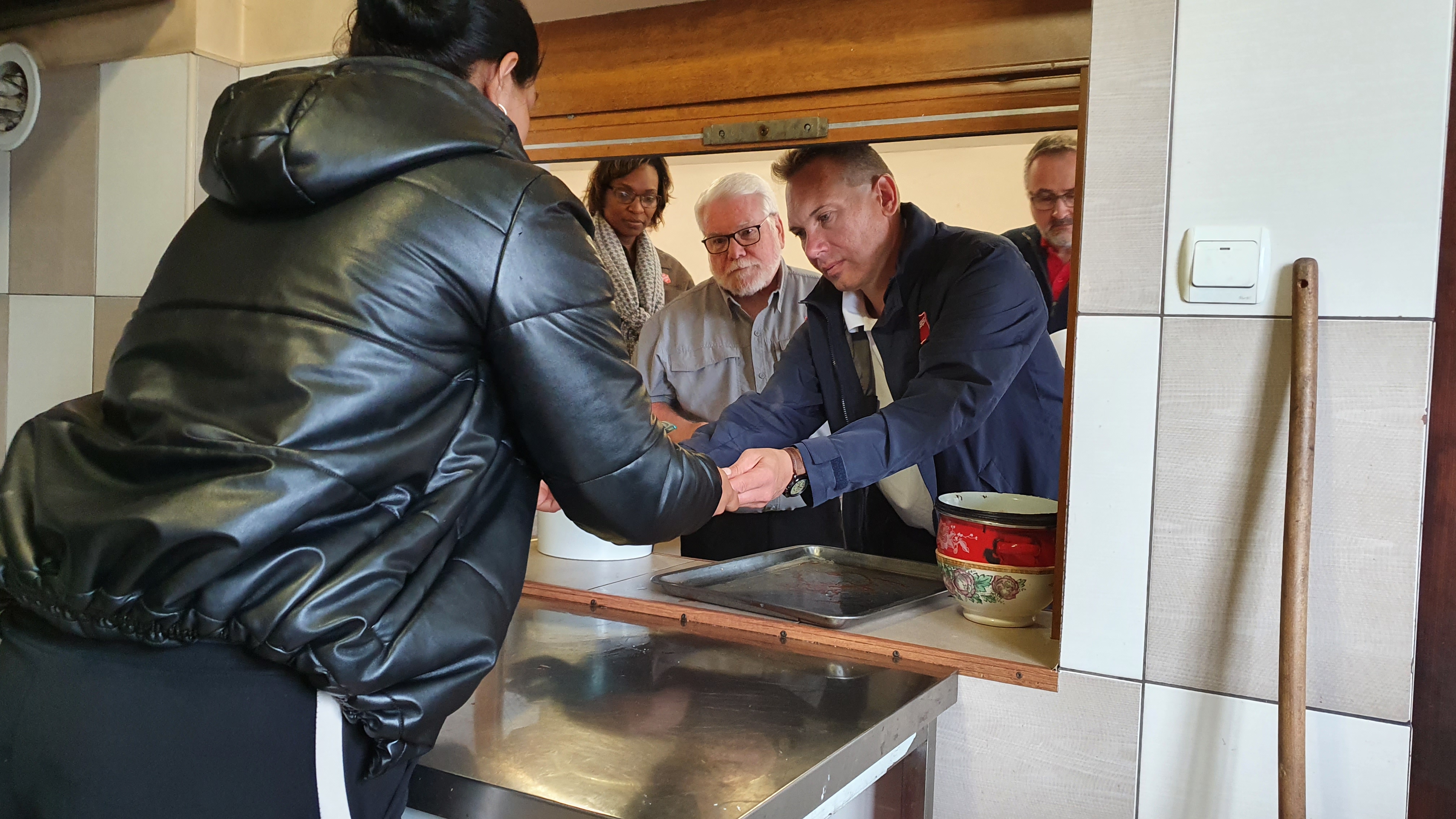On the morning of February 24, 2022 Russian forces invaded Ukraine in an extreme escalation of the Russo-Ukrainian conflict which began in 2014. Almost instantly after Putin’s announcement of a ‘special operation’ in Ukraine, explosions were reported in Kyiv, Kharkiv, Odessa, and the Donbas. Russian troops were reported to have landed in Mariupol and Odessa, crossed into Ukraine from Crimea, and launched attacks on prominent airfields, military headquarters, and supply depots in Kyiv, Kharkiv, and Dnipro. Russian armored vehicles entered Ukraine through Senkivka, in northern Ukraine, on the boarder with Belarus and Russia. In the first few months of the invasion over 8 million refugees were estimated to be displaced within Ukraine. A further 8 million refugees were recorded across Europe. The Salvation Army mobilized services for refugees crossing from the Ukraine into Moldova, Romania, Poland, Slovenia, and Hungary. The Salvation Army has a long-standing presence in Ukraine which was best placed to assist Ukrainians in need within the country. Main service locations included Dnipro, Donetsk, Kharkiv, Kropyvnytskyi, the capital city Kyiv, Lviv, Noviy, Pisochin, Vinnytsia. The Salvation Army also responded to needs in Crimea and Russia. In the first one-hundred days The Salvation Army provided 25,701 cooked meals, 40,621 food parcels and vouchers, 14,275 hygiene kits, and 25,701 teaching/awareness sessions, and distributions of educational materials to refugees. By April 2022, the UN estimated that two thirds of Ukraine’s children had been displaced by the war, with 90% of Ukrainian refugees being women and children. On April 8, a Russian missile strike hit the train station in Kramatorsk. At least 50 Civilians including women and children died, and over 100 were wounded in the attack as they were evacuating Ukraine. This catastrophe kicked off Moscow’s pivot toward more focused action in the east of Ukraine. Shortly after this tragedy, the Russian offensive to seize Donetsk and Luhansk began. On May 12 the UN launched an enquiry into Russian war crimes, and by May 20, Russia captured the strategic port town of Mariupol. In June UN projections indicated up to 181 million people in 41 countries could face acute food insecurity and outright famine due to millions of tons of Ukrainian grain languishing in silos since the start to the war. By July 22, 2022 a deal was struck between Ukraine and Russia for grain exports to resume. During this time The Salvation Army continued to offer food and shelter throughout the region, further recruited volunteers to assist Salvation Army staff, continued setting up more border welcoming stations to provide refugees with a meal, water and spiritual support, constructed a refugee housing block in Latvia, helped to provide water filtration to areas now populated with refugees, and set up children’s programs as well as care and recreational activities within its centers of service. By fall, the Russian advance had stalled. Russia had failed to capture the Ukrainian capital, Kyiv, but had secured large parts of eastern and southern Ukraine. In the first few months of the war, the Russian Ministry of Defense had claimed the threat to civilian populations was minimal, that Russia was limiting actions to surgical strikes on Ukrainian military targets and infrastructure alone, or civilian infrastructure transporting munitions to the frontlines. From October, 2022 however, Russia strategically ramped up attacks on civilian energy infrastructure. The attack on infrastructure in Zaporizhzhia city on October 9, 2022 was an opening barrage that escalated in brutality, leading to a wave of energy infrastructure bombardment in multiple key cities across Ukraine including Kyiv. By November, 2022, nearly half of Ukraine’s energy infrastructure was destroyed leaving over half the population without heating or electricity. The World Health Organization (WHO) estimated the health risk of no heating or electricity during harsh Eastern European winters to be the greatest health risk faced by a country since World War II. President Zelenskyy stated the strikes were “absolute evil” and “terrorism”. The strikes were aimed at demoralizing the population, and forcing Ukrainian leadership into negotiations entirely on Russian terms. The Ukrainian population stood firm. The Salvation Army World Service Office responded by fundraising for Ukrainian winterization. The Salvation Army in the Eastern European Territory gave vital supplies, providing basic hygiene, warm meals, Christmas toys, bedding, blankets, cozy clothing, assistance with heating, and emotional and spiritual care. To date The Salvation Army World Service Office has provided 43,091 hygiene items, 84,088 food parcels, 355,937 cooked meals, provided shelter for 14,020 people, provided 63,144 NFI items, and given psycho-social care to 14,369 people.


